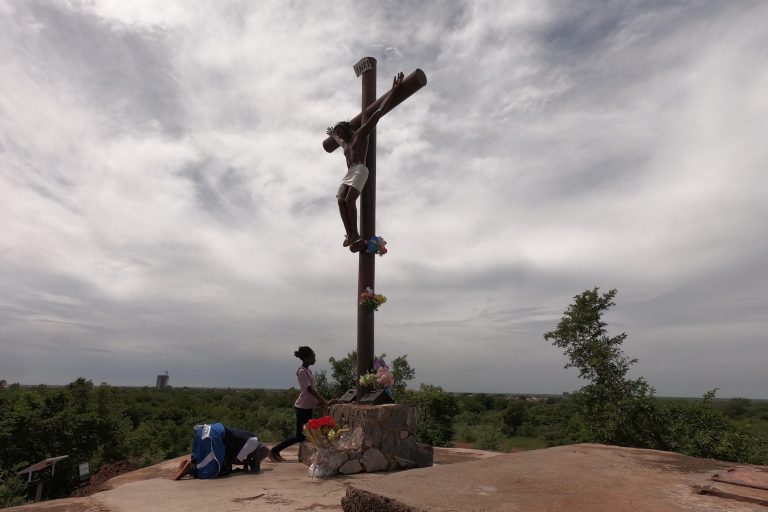RWANDA’S calvary points the way to resurrection

A Rwandan priest ministering to prisoners convicted of genocide has said that the mystery of Good Friday speaks to the immense suffering endured by the Tutsis people.
With the International Day of Reflection on the 1994 Genocide against the Tutsis in Rwanda falling on Good Friday this year (7th April), Father Théogène Ngoboka highlighted how the feast pointed to an answer about the problem of pain.
He said: “During the genocide, many Rwandans who were strong believers asked where God was.
“Above all, there was a well-known Rwandan adage saying: ‘God spends his day in other countries and always comes back to spend the night in Rwanda’.”
Father Théogène Ngoboka added: “Many still ask the question about the silence of God in the face of their suffering.
“The answer to this question can be found in the mystery which we celebrate on Good Friday – God was with his suffering children, his persecuted righteous ones, a sign of the victory of life over death, a sign of the hope of a better future in Jesus Christ.”
Father Ngoboka, the Director of Cyangugu Diocese’s Justice and Peace Commission, ministers to 1,300 prisoners in Rusizi prison sentenced for crimes connected with the genocide and helps those who have served their sentences to return to society.
But he stressed: “The wounds are still sensitive, even 29 years on. Some people don’t want to open these wounds when they are beginning to heal…
“Some victims still can’t mourn their loved ones because they don’t know where their bodies are. They are waiting on their tormentor to discover the scene of his crimes.”
Father Ngoboka and volunteers from the Justice and Peace Commission start preparations three years before the prisoners are due to be released.
They ask inmates to write to those they want to forgive them, and prison authorities authenticate the letters to prove they are genuine.
He said: “The fact is, you may have served your sentence as regards the law, but society continues to judge you.
“I explain to the inmates that it’s important and necessary to be reconciled with the community.”
Father Ngoboka described how the Church tries to bring together the families of prisoners, and the relatives of those who lost loved ones to achieve reconciliation before the release.
He said: “Most of these people are believers, and faith plays a key role in the process of forgiveness.
“All our meetings take place around the Word of God where we find models of forgiveness. We pray and discuss the texts which show how much forgiveness sets you free.
“We also invite people who have already been through this process of reconciliation to give testimony.
“That encourages the others. So, when the prisoners are let out, they arrive in a community which has already been prepared.”
Father Ngoboka stressed that they continue to support prisoners and victims for six months after they return to the community.
He said: “Reconciliation is not automatic. Trust must be built. It’s a long journey.”
Aid to the Church in Need has worked with Father Ngoboka’s Justice and Peace Commission, sponsoring psycho-spiritual training for 120 priests and religious reaching out to families across three dioceses in need of trauma counselling.
